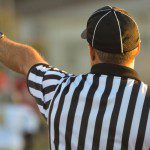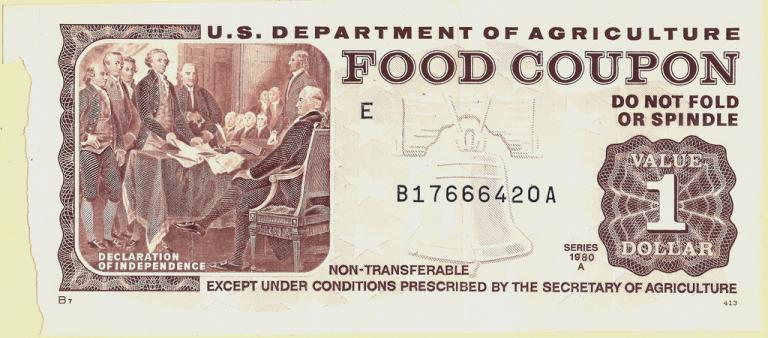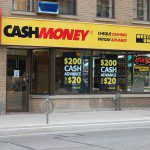![https://commons.wikimedia.org/wiki/File%3AGuaranteed_Payday_Loans-Cash_Money_Store.jpg; By Vinceesq [CC BY-SA 3.0 (http://creativecommons.org/licenses/by-sa/3.0) or GFDL (http://www.gnu.org/copyleft/fdl.html)], via Wikimedia Commons](https://wp-media.patheos.com/blogs/sites/533/2016/10/800px-Guaranteed_Payday_Loans-Cash_Money_Store.jpg)
According to today’s Tribune, the Consumer Financial Protection Bureau is proposing to crack down on payday lenders.
Broadly, the bureau proposes that lenders must find out upfront if a borrower can pay back a loan (using check stubs, financial statements or other measures), limit the number of times a payday loan can be rolled over and give borrowers more time and protection before lenders can debit money owed them from customer checking accounts.
Other activists have called for an outright cap on interest (whether stated as such or built into the fees) of 36% per year.
Is this the right thing to do?
The first question is, do payday lenders make obscene profits off the backs of the poor? Or, rather, do the poor “comparison shop” for the best deal in payday loans? I have no evidence one way or the other except a sign at a payday loan place we used to pass by that advertised “we will beat anyone’s rates.” If they comparison shop, and if there’s no collusion among lenders to keep fees up, then it’d be credible to say that the fees/implied interest rates are simply the best those lenders can offer, considering the risk that nothing will be paid back. The fact that users can’t calculate an APR based on fees doesn’t really matter so much as whether there is an active market with multiple lenders seeking out business with “we offer the best deal.”
What’s more, the payday lenders say that, if they didn’t exist, then the poor would face situations of even greater hardship — paying overdraft fees for bounced checks, having electricity cut off, losing a job because you can’t get the car repaired, whatever it might be.
But here are a couple observations:
First, as I pointed out yesterday, 7% of Americans don’t have a bank account at all, and without it, they can’t even get a loan from a payday lender. What’s more, according to Wikipedia, 14 states and D.C. already ban payday loans. Are the people in those states financially worse off due to their inability to get these sorts of easy-approval short-term loans? Are they more likely to overdraw their bank accounts, get electricity shut off, face other consequences of not being able to get these loans?
Second, I read somewhere (and, eh, it’s probably typed up in some prior post) that the poor, despite this romanticized idea of “we didn’t have much, but we had each other,” actually are woefully lacking in the sort of social networks that support each other in hard times, whether it’s through church or through extended families or neighborhoods. In fact, it seems to me that a long time ago I read that one of the reasons why young women have babies they can’t financially care for is that they are missing these networks, and the prospect of a baby brings the prospect of someone to love and care for and who will, in turn, love and care for them, and that this is all the more important to them when they’re lacking this. What this means is that, if you’re poor, you really don’t have the ability to borrow informally.
So, I’ll be honest. There’s probably tons of data out there, and I don’t have the time to dig into it. But, readers, what do you think?
https://commons.wikimedia.org/wiki/File%3AGuaranteed_Payday_Loans-Cash_Money_Store.jpg; By Vinceesq [CC BY-SA 3.0 (http://creativecommons.org/licenses/by-sa/3.0) or GFDL (http://www.gnu.org/copyleft/fdl.html)], via Wikimedia Commons













